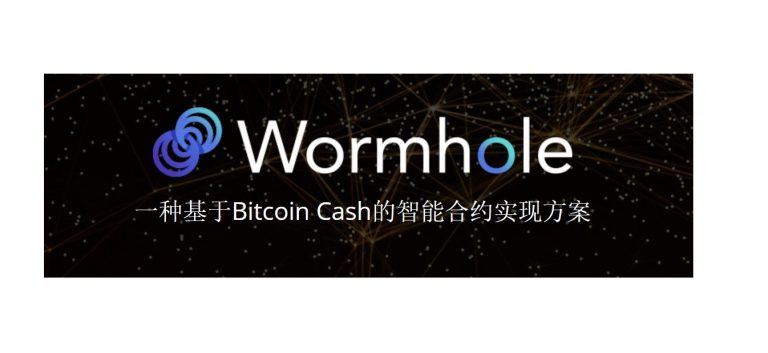2018-10-29 19:50 |
In the quest for ethereum’s growth and scalability, the organization had the third milestone on their roadmap slated for this year.
This third stage called Metropolis involves the upgrading of the ethereum platform from the Proof of Work consensus to the Proof of Stake consensus, whilst solving its scalability issues. This upgrade called Constantinople has unfortunately, suffered a series of setbacks, resulting in the ethereum team moving its release date to sometime in 2019.
Constantinople which was meant to be a hard fork, and one that lots of investors and traders were looking forward to, was rolled out on Ropsten –ethereum’s trial network- to see how it would perform.
Unfortunately, the rollout saw the upgrade experiencing problems like poor communication, significant difference between two clients implementing the upgrade, as well as technical glitches. This forced the team to move the date in the hopes that all these problems would have been resolved by then.
Constantinople is incredibly important to the next phase of ethereum’s growth. So, getting those problems solved, will play a critical role in determining if ethereum will still stay relevant and possibly achieve its potential as the “bitcoin killer”.
Constantinople And Its FeaturesThis upgrade was supposed to include five improvement features called the Ethereum Improvement Proposals (EIPs). These were meant to help make the change from proof of work to proof of stake easier and smoother. The EIPs are as follows:
EIP 145 – the introduction of native bitwise shifting method to help process information faster on the ethereum blockchain EIP 1014 – designed to use off-chain transactions as a more efficient scaling solution EIP 1052 – permits and optimizes large scale code executions for a more efficient output EIP 1234 – delays difficulty bomb for a year and decreases block mining rewards to 2 ETH per block instead of 3 ETH per block. Also, aids network stability and code optimization EIP 1283 – Lower cost of gas, thus encouraging smart contract developers to put out more of thoseWith its rollout, the network would experience significant fundamental change in how it works, thus creating a hard fork where the community and developers can either choose to follow the new fork or stick with the legacy network.
Also, the new upgrade is designed to prevent any form of backward compatibility, thus eliminating the chances of events like double spending or vulnerabilities that can be exploited by hackers. The implementation of this hard fork would also prevent the deployment of something called the difficulty bomb.
This is the process of making mining and the creation of new blocks more difficult and harder than it currently is, start the process of what is known as the Ethereum Ice Age and encourage miners to move to the Proof of Stake network. Of course, this will still be implemented, it’s just delayed for now, until Constantinople is launched.
What Caused The Delay – Issues With The Hard Fork?Naturally, there was the need for a review of what caused the delay in the deployment of the upgrade. The meeting which was held live on Youtube on the 19th of October, saw Schoeden explaining the problem.
According to him, one of the key problems was that ethereum miners and the community weren’t prepared for the launch. The change in the launch date –the date was moved forward because of the added hashpower- was probably responsible for this, thus leading to poor chain synchronicity.
That, combined with the miners continued use of the Byzantium protocol, resulted in the accompanying problems experienced during the attempted launch.
How Did The Community Take It?As can be expected, the community was divided, with some being happy, and others unhappy. Some criticized the delay, others praised it, saying they’d prefer a more secure network instead of hastily implemented highly vulnerable one.
For instance, a reddit thread dedicated to addressing the community’s concerns saw users condemning the delay and even calling on the team to forget about the project. There were others who either referred to the upgrade as “useless and unnecessary” or had a more pessimistic view about its realization in the near future.
Nevertheless, there were also a number of users who commended the team’s hard work and commitment to excellence. In fact, there were a few jokes about miners being the major beneficiaries as they can still continue mining at the current difficulty rate and enjoy the standard payouts.
According to a reddit user,
“I would rather they delay then need 3 last-minute, emergency patches like last year. Take your time and do it right guys. Software can be hard.”
Another one said,
“Just keep doing what you need to do to be safe and thanks for all the great work.”
While this may be disappointing for some users, the truth is the team isnt deviating from the plan to move to the Proof of Stake consensus. Here’s what Vitalik Buterin said about that in September:
I think I've been pretty consistent about my view that (i) every present-day existing blockchain, including ETH and BTC, sucks, and (ii) PoS is necessary. Not sure why anyone surprised.
It’s Not All Bad NewsThe good news is that the delays may end being very beneficial, and will help the team work out all the kinks before deployment. In fact, this is way better than having to deal with the problems that can arise from rushing the launch of the upgrade. In the words of Schoeden,
“I keep getting the feeling that we’re trying to rush this and I would second that we should breathe and see what happens… I’m not comfortable talking about the hard fork date until we have the tests for Constantinople ready.”
To that end, he informed the community not to expect the launch of the upgrade until the end of January 2019, at the very earliest. This is because running the upgrades on the Ropsten testnet, will take a minimum of 6 weeks.
This will give the team ample time to identify and fix all possible problems and issues, before launching the mainnet upgrade. At the end of the day, safety is more important than speed when it comes to the deployment of this new upgrade.
origin »Bitcoin price in Telegram @btc_price_every_hour
Ethereum (ETH) на Currencies.ru
|
|





















